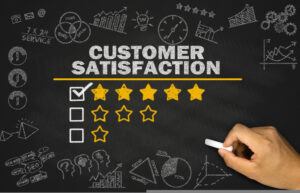There’s often an initial rush of pleasure we get when we buy something new. Maybe it’s a burst of confidence from a new pair of shoes, or the rush of freedom you feel when you get behind the wheel of a new car for the first time. It’s a sensation we all know and can identify with.
However, as Fast Company points out, the acquisition of things only makes us happy for a limited amount of time. Our minds adjust rather quickly to possessions, which is why something that delighted us one day is something we barely think about a few weeks or months down the line—even if it felt like a life-changing purchase.
Experiences, on the other hand, never seem to lose their shine in our memories. It seems that getting up and doing things is often a better investment, both in terms of immediate happiness and of long-term pleasure. You can cherish a great experience and tell stories about it for the rest of your life. And no matter how many times you re-live that experience, it never stops being great. Science backs this up, according to The Atlantic, and it’s why more people than ever before are seeking out fresh experiences instead of saving up for shiny things to buy.
What Does Any of That Have to Do with Marketing?
Marketing, at its core, is all about how you make the customer want what you’re selling. One way to do that is through experiential marketing, which is when a brand engages directly with people who are having (or who want to have) a particular kind of experience.
Whether it’s an athletic event, a concert, or some other kind of direct experience, your brand is linked in participants’ minds with the event in question… and thus the experience they had. Which means that, because memories of experiences can make such a large impact over the long-term, the impact your brand makes on someone with that interaction will last an equally long time.
If you give someone a free tee shirt, they’ll be positively inclined toward you in the short-term. But if they associate that shirt (and by extension your brand or product) with the best concert they ever attended, you might have a customer for life.
Tapping into Customer Experiences
The goal with experiential marketing is to give your customer a positive experience and then to link that experience to your brand and your products.
At a broad level, this is why so many brands sponsor summer concerts, or put in appearances at fairs and festivals. Any venue where people come to have a good time can become linked with a brand or product that was prominently featured at that event. Even if you were a relatively minor part of that person’s experience, you still get to reap the benefits of that positive association.
But venue participation is only the tip of the iceberg — any brand can be linked to any experience through brand messaging, advertising, or sponsorship.
Consider Red Bull’s sponsorship of Felix Baumgartner’s supersonic freefall jump in 2012 — with 45 million views and counting, it has to be considered a remarkable example of experiential marketing that perfectly fit Red Bull’s brand.
The key is to find experiences that fit well with your brand or product and create an effective synergy — and then find ways to link that experience to your brand in consumers’ minds. And since memories don’t wear out the way actual products do, that association can keep customers coming back long after the initial experience is over.









